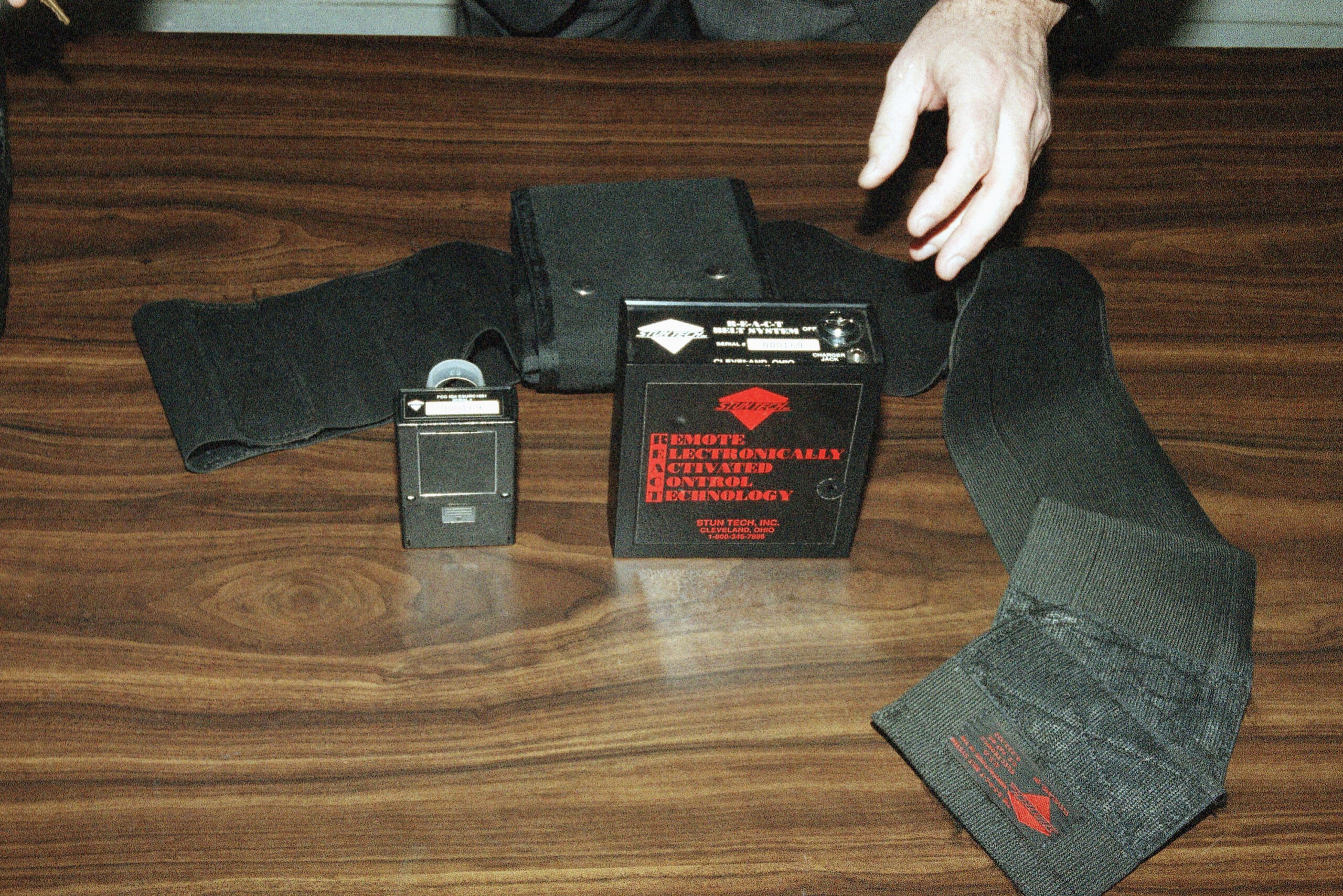Shock Belt Tainted Ga. Death Penalty Trial, ACLU Lawyers Say

A stun belt, like this one from a 1998 case in Los Angeles, is at the center of a push for a new trial in a Georgia death penalty case.
Damian Dovarganes / Associated Press
Lawyers for a Georgia death row inmate are asking for a new trial based on something the defendant was wearing during his original murder trial: a 50,000-watt stun belt.
NOVA Security Group is the Florida company that makes the stun belt Rodney Young wore during his murder trial five years ago.
A promotional video for the product shows a series of defendants suddenly attacking people in courtrooms, except for the ones wearing stun belts. They fall to the ground seconds after they stand up.
“So the whole design is essentially for high-risk security transports and to enhance courtroom security for inmates or subjects that could be potentially violent, have a history of escape or escape attempts,” said Brian Dillard, an instructor with NOVA security.
But lawyers for Rodney Young argued last week in court that none of that was the case for their client.
“In fact, all the testimony at the hearing was that our client was perfectly peaceful and perfectly well behaved in court,” said attorney Brian Stull with the ACLU’s Capital Punishment Project.
“There was a juror in this case, and he actually made a report to the court officers and said this guy looks very anxious, and that’s making me anxious,” Stull said. “I want you to make sure the security is high because I don’t know why he’s looking so anxious. And we know why.”
The stun belt, Stull argued, not only terrified his client but made it hard for him to participate in the trial. Young’s lawyers want a new trial, citing the device and a number of other reasons, including what they say is his intellectual disability. They expect a ruling to take months.
Young was convicted for the 2008 murder of his ex-fiancee’s son in Newton County.
The use of a stun belt during trial did lead an appeals court in Indiana to throw out a death sentence there just this August.
The manufacturer said defendants are told how the product works before it’s put on them, and that it’s no more threatening than court officers already on hand.








